When it comes to childbirth, the debate between natural and medicated options can feel like a game of tug-of-war. On one side, you have the advocates of natural childbirth, waving their flags and chanting about the benefits for both mother and baby. On the other, the modern medical community, armed with epidurals and C-sections, ready to swoop in at the first sign of distress. So, is natural childbirth really the golden ticket for baby’s health?
Table of Contents
ToggleOverview of Natural Childbirth
Natural childbirth emphasizes delivering a baby without the use of medications or surgical interventions. This approach often includes techniques such as breathing exercises, relaxation methods, and mental visualization to manage pain. Advocates argue that these techniques enhance the birth experience and foster a natural bonding process between mother and baby.
Research indicates numerous potential benefits associated with natural childbirth for babies. For instance, babies born through natural means often exhibit better respiratory function due to the hormonal response during labor. Exposure to beneficial bacteria in the birth canal may also strengthen a baby’s immune system.
Several birthing environments favor natural childbirth, such as birthing centers and home births. These settings tend to encourage a relaxed atmosphere, contributing to a more positive experience for the mother. Emotional support from partners and professionals plays a crucial role in facilitating this environment.
Certain studies suggest that natural childbirth can lead to shorter recovery times for mothers, which indirectly benefits babies through enhanced maternal care. When mothers recover quickly, they are more likely to engage in skin-to-skin contact, fostering early breastfeeding and bonding.
Despite the benefits, natural childbirth may present challenges. Each mother’s experience can vary significantly based on factors like pain tolerance and previous births. A strong support system remains essential to navigate these challenges effectively.
Examining the natural childbirth experience offers insights into the various factors influencing the health and well-being of both mother and baby. Understanding both perspectives allows parents to make informed decisions regarding childbirth methods.
Benefits of Natural Childbirth for Baby

Natural childbirth offers several advantages that can positively influence the baby’s well-being. The absence of medications supports more robust respiratory function at birth. Babies exposed to a natural delivery often encounter the beneficial bacteria present in the birth canal, which enhances their immune systems. Research confirms that these factors contribute to a healthier start for newborns.
Health Benefits
Natural childbirth promotes better health outcomes for babies. The process allows for lower instances of respiratory issues, as natural delivery encourages optimal lung function. Newborns delivered vaginally show increased rates of beneficial bacteria, which can shield them from infections. Studies indicate a correlation between natural childbirth and reduced risks of certain chronic conditions later in life. Research also highlights that babies born through natural methods tend to exhibit improved developmental milestones during early childhood.
Emotional Benefits
Natural childbirth fosters immediate bonding between mother and baby. This strong emotional connection enhances physiological stability for the newborn. Mothers often respond more positively to their babies, which encourages attentive caregiving. Emotional support during labor also reduces stress levels for both mother and child. These interactions contribute to higher rates of successful breastfeeding, supporting not only the baby’s nutritional needs but also the emotional bond between mother and baby.
Risks of Natural Childbirth
Natural childbirth presents several risks that parents should consider. Understanding these potential complications helps in making informed choices.
Potential Complications
Infections can occur during labor and delivery without proper medical monitoring. Excessive bleeding may also result if complications arise, posing risks to both mother and baby. Shoulder dystocia, a condition where the baby’s shoulder gets stuck during delivery, poses serious hazards. Prolonged labor can lead to fetal distress, requiring emergency interventions. Less commonly, uterine rupture or other significant injuries may happen during an unmedicated birth. Awareness of these possible complications is crucial for anticipating and managing risks effectively.
Considerations for Different Situations
Every childbirth experience varies based on individual circumstances. Certain medical conditions, like high blood pressure or diabetes, may necessitate closer monitoring and medical interventions. Previous cesarean deliveries pose additional risks for attempting natural childbirth, and careful evaluation can guide decision-making. Each parent’s birth plan should reflect their unique health status and preferences. Consulting healthcare professionals ensures that they receive tailored advice and support. Understanding these considerations helps parents navigate the decision-making process surrounding natural childbirth.
Comparison with Other Childbirth Methods
Natural childbirth contrasts significantly with medicated methods such as epidurals or C-sections. Advocates for natural childbirth highlight benefits like enhanced respiratory function in newborns. Babies born this way often receive exposure to beneficial bacteria, fostering immune health. Research suggests this exposure results in lower occurrences of respiratory problems.
C-sections, while necessary in specific cases, may pose risks for the baby. For instance, newborns can miss out on essential bacteria that promote immune system development. Health professionals express concern about the long-term effects of birth method on chronic conditions faced by infants.
Additionally, medicated births can lead to complications such as delayed bonding. The immediate skin-to-skin contact that natural childbirth encourages fosters emotional connections between mother and baby. These connections potentially enhance caregiving practices, benefiting the child’s development.
Parents weighing their options should consider their unique situations. Families with a history of complications or certain medical conditions might prefer medicated approaches for safety. Consultation with healthcare providers ensures tailored guidance, addressing individual needs.
Overall, natural childbirth lends itself to various physical and emotional advantages. Each method carries distinct considerations regarding both mother and baby’s health. Understanding these differences helps parents make informed decisions during pregnancy.
Expert Opinions on Natural Childbirth
Experts often advocate for natural childbirth due to its numerous benefits for newborns. Enhanced respiratory function stands out as a significant advantage. Babies delivered naturally show improved breathing patterns immediately after birth. Research suggests that these infants tend to experience fewer respiratory complications compared to those born through surgical interventions.
Beneficial bacteria exposure during natural childbirth plays a crucial role in strengthening a baby’s immune system. The journey through the birth canal introduces essential microorganisms that contribute to long-term health. This exposure may reduce the incidence of infections in newborns, promoting a healthier start to life.
Immediate bonding between mother and baby is another critical aspect endorsed by pediatric specialists. Lactation consultants emphasize the importance of skin-to-skin contact right after delivery, which supports emotional connections. Mothers who opt for natural childbirth often report heightened responsiveness to their baby’s needs, fostering better caregiving practices.
Concerns about risks associated with natural childbirth also arise among healthcare professionals. Complications such as infections and prolonged labor require careful consideration. Experts recommend that parents with pre-existing medical conditions consult their healthcare providers to make informed decisions tailored to their unique circumstances.
When comparing natural childbirth to medicated methods like C-sections, many advocates highlight the potential drawbacks of surgical births. Delayed bonding often occurs when interventions are necessary, impacting the emotional connection between mother and baby. Professionals in maternal health urge parents to weigh the benefits and risks of each method to ensure the best outcomes for both mother and child.
Natural childbirth offers several potential benefits for newborns including improved respiratory function and enhanced immune support. The experience fosters immediate bonding between mother and baby which can lead to better caregiving practices. However it’s crucial for parents to weigh these advantages against the risks involved. Each childbirth method has its own set of considerations and what works best can vary based on individual circumstances. Consulting healthcare professionals ensures that parents receive personalized guidance tailored to their specific needs. Ultimately the choice of childbirth method should prioritize the health and well-being of both mother and baby.








